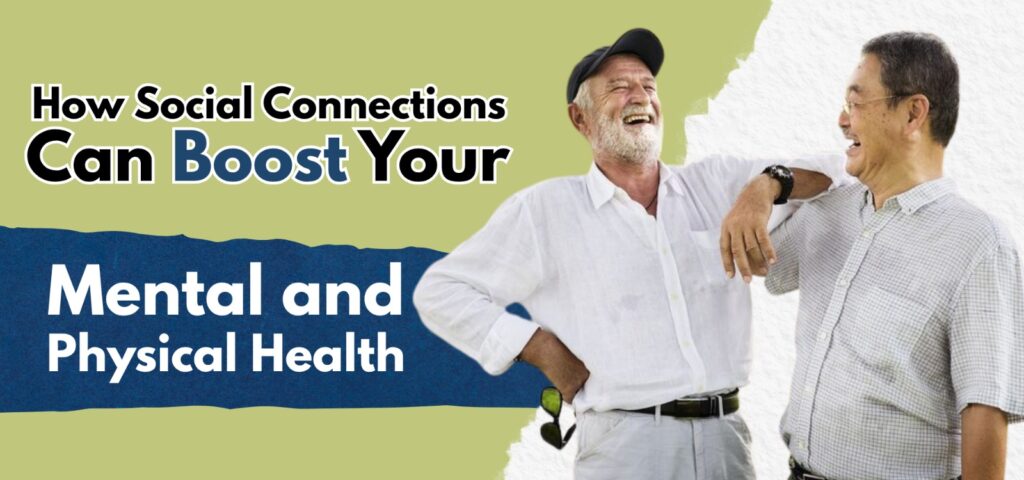Social connection is more than just a source of joy—it is a key determinant of health and longevity. As discussed in Dr. Prasun Chatterjee’s insightful book “Health and Wellbeing in Late Life”, meaningful relationships play a pivotal role in protecting older adults from mental distress, physical decline, and premature frailty. Below is a point-wise exploration of how social bonds directly impact health, grounded in Dr. Prasun’s research and real-life case narratives.
✅ 1. Social Isolation Increases Risk of Disease and Death
- Loneliness is not harmless—it’s a serious health risk. Dr. Prasun notes that loneliness and lack of social engagement increase the risk of dementia, depression, heart disease, and even mortality.
- Research cited in the book suggests that chronic loneliness can be as harmful as smoking 15 cigarettes a day, as it weakens immunity and worsens inflammation in the body.
✅ 2. Supportive Social Circles Prevent Mental Decline
- Mental health in late life is directly linked to emotional support. Older adults with a good network of family, friends, or community groups experience fewer symptoms of anxiety and depression.
- In the book, Dr. Prasun shares the story of an older man who overcame grief after his wife’s death through community involvement and daily group interactions, highlighting the emotional healing power of companionship.
✅ 3. Community Engagement Enhances Physical Vitality
- Socially active seniors are more likely to stay physically active. Regular walks, group games, or dance activities are easier to sustain when shared with peers.
- The senior group in Delhi featured in the book played badminton regularly and were listed in the Limca Book of Records—a shining example of how group bonding supports physical wellness and combats frailty.
✅ 4. Social Groups Foster Purpose and Identity
- One of the most overlooked aspects of aging is the loss of societal role. Dr. Prasun emphasizes that being part of social groups restores a sense of value and identity.
- At the Intergenerational Learning Centre mentioned in the book, elderly participants served as teachers to younger children. This intergenerational exchange not only boosted their confidence but also reduced symptoms of isolation and forgetfulness.
✅ 5. Families Play a Foundational Role
- While communities help, the role of family in elder care remains crucial. According to the book, early emotional conversations, shared responsibilities, and routine family involvement drastically improve outcomes for elders.
- In one case, an older woman experiencing early signs of dementia showed improved stability once her family created structured interaction times and simplified her environment.
✅ 6. Technology Can Bridge Gaps in Social Connection
- Elderly people who adapt to using smartphones, WhatsApp, or video calls can maintain emotional ties even with distant loved ones.
- Dr. Prasun highlights how a retired engineer, Mr. Tripathy, stayed emotionally well-connected by talking daily with his granddaughter via Skype—even learning how to operate it himself in his 80s!
🔚 Conclusion: Connection Is Medicine
Dr. Prasun Chatterjee’s work strongly reminds us: health in old age isn’t just about medicine, tests, or exercise—it’s about human connection. Whether through family, friends, neighbors, or digital platforms, staying socially active reduces suffering and adds meaning to the later years of life. Communities, families, and healthcare providers must treat social health as a vital sign, not an afterthought.
“A healthy heart is often supported by healthy relationships.”
— Dr. Prasun Chatterjee, Health and Wellbeing in Late Life

